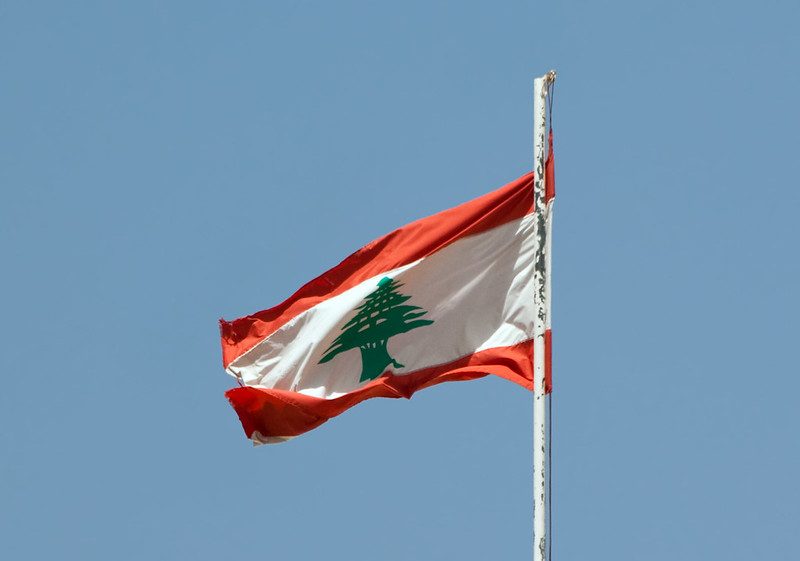Qatari authorities have yet to comment on the reported meeting.
Qatar is reportedly set to attend a quadripartite meeting that will attempt to outline a roadmap to tackle Lebanon’s multifaceted crises later this month or early February, Beirut’s LBC reported on Monday.
According to the Lebanese broadcaster, the meeting involves Qatar, Saudi Arabia, the United States and France, following “preliminary contact” over Beirut’s worsening situation.
The report stated that the meetings will result in a roadmap for Lebanese political parties, and will include regional states, including Iran, Egypt, the Gulf Cooperation Council and Russia.
World powers attending the meeting will attempt to break through Lebanon’s ongoing socio-economic crisis as well as its delayed presidential elections. It is unclear where the meeting will be held, though some reports pointed towards Paris as an option.
LBC further revealed that discussions will include “a concrete action plan for governance” along with “reforms that set specifications for the president, the prime minister, and the entire government.”
One of the potential conditions would be that the candidates must not have a history of political or financial corruption in their records.
Former President Michel Aoun’s six-year term ended in October last year, however the presidential vacancy has yet to be filled. Reports speculate that Lebanon’s army commander General Joseph Aoun would assume the role.
Officials from countries participating in the meeting have yet to confirm the meeting.
Doha News contacted Qatari authorities for a comment but has yet to receive a response.
Lebanon’s crises
Qatar, Saudi Arabia, the US, and France are among the key countries that have continued to discuss rescue plans for Lebanon as it grapples with its worst economic crisis in decades.
The Lebanese currency hit an all-time low after losing more than 90% of its value to the US dollar since 2019. At least 80% of the country’s population now live in poverty.
The situation in Lebanon was exacerbated by the Covid-19 outbreak as well as the deadly Beirut Port blast in 2020. Despite billions of aid sent to the country in response to the tragic Beirut explosion, Lebanon has yet to financially recover.
Qatar was the first country to offer direct support to Lebanon in the aftermath of the explosion, pledging more than $70 million in donations. Doha continued to pump aid into key sectors in Beirut, from health to the army in an effort to alleviate its burden.
Speaking to Doha News, political analyst and expert Dr. Ali Bakir said Qatar and Lebanon have always enjoyed cordial relations.
“Doha played crucial diplomatic and economic roles during several major crisis in Lebanon in the last two decades or even more and achieving stability and security for Lebanon is a priority for Doha”, said Dr. Bakir, Non resident Senior Fellow at the Washington based Atlantic Council, Scowcroft Middle East Security Initiative.
“Currently, Lebanon’s problems are much bigger than what can one country handle even if it is Qatar. Doha has been encouraging the Lebanese parties to solve their problems and focus on the Lebanese people’s priorities.
“I think with the latest delimitation agreement between Lebanon and Israel with the US mediation, Qatar can play a role concerning everything related to gas in Lebanon. However, in order for that to happen, the conflicting Lebanese parties should solve the presidency issue. I think the Qatari stance in this matter is more or less in line with the American one,” he added.
Meanwhile, Saudi Arabia and France pledged a $30 million joint development fund for Lebanon in April last year in bid to address the food security and health sector. In December 2021, Riyadh and Paris also agreed to continue their joint efforts to address Lebanon’s crisis.
Similarly, Washington announced further aid contributions to Lebanon last year, consisting of $15 million in humanitarian assistance and $14.5 million in economic support funding.
Last year, the US also led intense talks over a years-long maritime border dispute between Lebanon and Israel that was deemed to be a crucial step forward for Beirut.
Plagued in corruption
Rights groups and Lebanese citizens across the country have pointed to the corrupt ruling elite as the main cause behind the nation’s crises.
A World Bank report released in July exposed how politicians in Lebanon were using the country’s resources to serve their own interests and accused officials of conducting a Ponzi scheme.
Last month, French President Emmanuel Macron called on Lebanon to “get rid” of its political leadership to resolve the “people’s problems”.
“Lebanon must change its leadership,” Macron told the press.
In 2019, mass protests broke out in Lebanon over the lack of basic resources. Protesters chanted“kellon ya’ani kellon” or (all means all) in a clear urge for the ruling elite to step down.
Last year, Qatar’s Foreign Minister Sheikh Mohammed bin Abdulrahman Al-Thani called for the need to address Lebanon’s political divide to resolve its decades-long crises.
Speaking to Newsweek’s podcast, Sheikh Mohammed said that sectarianism has largely contributed to the country’s current state.
“Unfortunately, the people of Lebanon are being under a lot of political pressure from their own political leaders. This is what resulted at the end of the day with what we have seen now with these divisions,” he said







